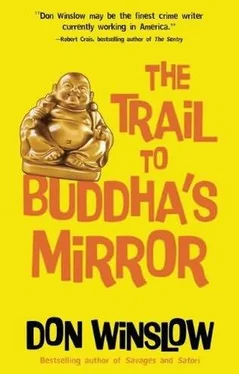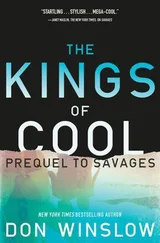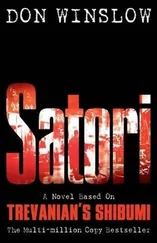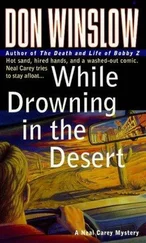Don Winslow - The Trail to Buddha_s Mirror
Здесь есть возможность читать онлайн «Don Winslow - The Trail to Buddha_s Mirror» весь текст электронной книги совершенно бесплатно (целиком полную версию без сокращений). В некоторых случаях можно слушать аудио, скачать через торрент в формате fb2 и присутствует краткое содержание. Жанр: Триллер, на английском языке. Описание произведения, (предисловие) а так же отзывы посетителей доступны на портале библиотеки ЛибКат.
- Название:The Trail to Buddha_s Mirror
- Автор:
- Жанр:
- Год:неизвестен
- ISBN:нет данных
- Рейтинг книги:3 / 5. Голосов: 1
-
Избранное:Добавить в избранное
- Отзывы:
-
Ваша оценка:
- 60
- 1
- 2
- 3
- 4
- 5
The Trail to Buddha_s Mirror: краткое содержание, описание и аннотация
Предлагаем к чтению аннотацию, описание, краткое содержание или предисловие (зависит от того, что написал сам автор книги «The Trail to Buddha_s Mirror»). Если вы не нашли необходимую информацию о книге — напишите в комментариях, мы постараемся отыскать её.
The Trail to Buddha_s Mirror — читать онлайн бесплатно полную книгу (весь текст) целиком
Ниже представлен текст книги, разбитый по страницам. Система сохранения места последней прочитанной страницы, позволяет с удобством читать онлайн бесплатно книгу «The Trail to Buddha_s Mirror», без необходимости каждый раз заново искать на чём Вы остановились. Поставьте закладку, и сможете в любой момент перейти на страницу, на которой закончили чтение.
Интервал:
Закладка:
“You have a scout ahead of us.”
“You have a good eye. But he’s not a scout. He’s a doorman. If we have to run, he opens a ‘door’ in the crowd for us and shuts it when we’re through.”
Neal knew what he meant. A doorman in a street operation is like a downfield blocker in a football game. When he sees his players running his way, he clobbers a civilian or two to open a hole. Once his own guys make it through the hole, he throws himself in the way of the pursuit. That’s the way it usually works, but if the doorman sees that it’s the opposition in the way instead of bystanders, he uses a knife or a gun or his hands to open the hole. When that happens the doorman is usually a goner unless the sweepers can get up to the action real fast. A doorman is expendable.
So Ben Chin sure knew what he was doing. Having a doorman ready is about the only way out of a net. Which was one of those good-news-bad-news jokes to Neal: good that Chin was ready for a trap, bad that he thought he had to be.
Chin himself seemed relaxed. He moved easily through the crowd, glancing at the store windows and checking out the women. To the casual observer he looked like a Kowloon tough on a leisurely search for some fun. But Neal saw the alertness in his eyes and recognized that each scan of a portable radio or an approachable woman screened a search for potential trouble. Chin was watching out for something, and Neal had the feeling that he wasn’t looking for some white guys. The various kweilo tourists that passed by didn’t earn a second glance.
Neal felt his paranoia come back on him like a stale shirt. Or maybe it was the fact that he had been on all-night flight and hadn’t bothered to shower, shave, or get a meal. It felt like a mistake, but then he remembered that the last time he had stopped to indulge in such human comforts, he had let Pendleton and Li Lan skip out to Mill Valley. He wasn’t going to give them the chance this time.
Chin was staring up and to the left, and Neal braced himself for some action. He turned to follow Chin’s gaze, and saw that it led to a movie marquee. Chin was staring at the poster advertising the current feature. The three sweeps stopped in their tracks, and one of them turned around to cover the rear. The Doorman used the pause to cross over to the west side of Nathan Road, then he stopped on the corner to turn and watch his boss.
Chin didn’t see any of it, but then again, he didn’t have to. He had a well-trained team and he knew it, and this gave him little luxuries like freedom to check out a movie.
The marquee said that the theater was called the Astor, but that was the end of the English; everything else was in Chinese ideograms. The posters showed a brightly dressed Chinese couple in period costume gazing fondly at each other, and another still of the same couple bravely wielding gigantic swords against what looked like an army of grinning villains.
“This place has the latest flicks from China,” Ben Chin explained. He looked at his watch. “Maybe we can go this afternoon.”
The Book of Joe Graham, Chapter Seven, Verse Three: “Everyone has a weakness.”
“Yeah,” Neal said. “Let’s see how it goes.”
The Doorman was doing a quick shuffle-step across the street, like a puppy whose master is taking too long to open the door for a walk. Neal didn’t blame him; the Doorman’s job was a lonely one, especially when he was cut off from his team by a broad and busy avenue. The doorman had a lot of responsibility here. It was his job to give the “Walk/Don’t Walk” signal.
Street crossings are tricky in this kind of work. You have to time it so the traffic flow doesn’t cut the sweepers off from the people they’re protecting. You also have to keep a sharp eye on all the cars that are coming and going. One car might cut off the sweepers while the crew in a second car takes out the target. A street crossing is a vulnerable moment.
They did it flawlessly, the Doorman using subtle hand gestures to call the signals, and the rest of the team coming across in one smooth flow. It was as nifty a job as Neal had ever seen, and he thought he could detect a small look of relief on the Doorman’s face as he led them west on Kansu Street.
Tenement buildings with cheap-looking ground-floor flats made up most of Kansu Street. You couldn’t really call the buildings slums, but they were dirty and in need of a paint job. One of the main landlords must have gotten a great deal on pastel green paint, because the color dominated several buildings on one block. Narrow balconies, open to the street but roofed with corrugated metal, edged most of the buildings. Television antennae poked out over the balcony railings and made a convenient place from which to hang laundry. Beds and hammocks also filled a lot of the balconies, and here and there the tenants had nailed up sheets of tin to provide a little privacy for the family members who lived out there.
Hong Kong couldn’t stretch out, so it stretched up. Everywhere you looked, the older, lower tenements were giving way to massive, block-long high-rises that had the unmistakable anonymity of government housing projects. The private sector was on the move, too; when the existing buildings had overflowed, people had simply moved themselves and their belongings out into the side streets and jerry-rigged shacks out of tin, old sheets, and cardboard. A few of these pioneers with a little more cash or some connections had scored some precious wood and built actual walls.
Neal felt as if he had stepped off Nathan Road into a Malthusian scenario in which the eye could never rest. The landscape was literally crawling; there was motion everywhere he looked. Children scampered along the balconies and played the same games played by kids everywhere, but their games of hide-and-seek seemed to encompass hundreds of contestants, and there was no place to hide. Merchants lined the sidewalks hawking an infinite variety of goods. Old women stood at windows or balconies shaking out sheets and towels, while their husbands leaned over the railing and smoked cigarettes or spat out sunflower seeds while they talked with their neighbors.
The noise was incredible: a din of conversation, banter, argument, negotiation, advertisement, and protest all conducted in the singsong but rapid-fire Cantonese dialect. Old women expressed outrage over the price of a fish while their sisters moaned in triumph or despair over the clackety-clack of mah-jongg tiles. Men trumpeted the virtues of bolts of cheap cloth or the undoubted tenderness of a particular chicken, while their less ambitious brothers argued over the chances of a two-year-old filly at Happy Valley that afternoon. Children squealed with unrestrained joy, or giggled at some private joke, or wailed in misery as a mother hauled them by the hand back into a building.
Then Neal noticed the smell-or, more accurately, the smells. The aroma of cooking predominated. Neal could distinguish the smell of fish and rice, and it seemed to him there were dozens of odors that he didn’t recognize, smells that rose from steaming woks in the street shacks and hung over the area like a permanent cloud. There was also the smell of a sewage system that couldn’t begin to cope with the demands placed on it, and the underlying stink of standing human waste permeated the air. The acrid smoke of charcoal braziers, masses of burning cigarettes, and building power plants made the air thick and hazy, and competed with the salt air of the nearby sea.
Yaumatei was a total crowding of the senses. Neal, after spending the last six months as the only occupant of an open moor, could only imagine what it might be like to to inhabit a world where, from the moment of birth to the moment of death, one never experienced a single moment alone.
Chin and his crew moved through the crowd like sharks through the ocean, constantly in motion and serenely calm. Their eyes never seemed to move from a straight-ahead gaze, and yet they seemed to take in everything. Neal noticed that people in the crowd would spot them and then quickly find something fascinating to look at on the sidewalk until the gang passed by. No hawkers or loiterers or curious kids approached Neal, even thought they were several blocks off the main kweilo tourist route. He was sealed off.
Читать дальшеИнтервал:
Закладка:
Похожие книги на «The Trail to Buddha_s Mirror»
Представляем Вашему вниманию похожие книги на «The Trail to Buddha_s Mirror» списком для выбора. Мы отобрали схожую по названию и смыслу литературу в надежде предоставить читателям больше вариантов отыскать новые, интересные, ещё непрочитанные произведения.
Обсуждение, отзывы о книге «The Trail to Buddha_s Mirror» и просто собственные мнения читателей. Оставьте ваши комментарии, напишите, что Вы думаете о произведении, его смысле или главных героях. Укажите что конкретно понравилось, а что нет, и почему Вы так считаете.












